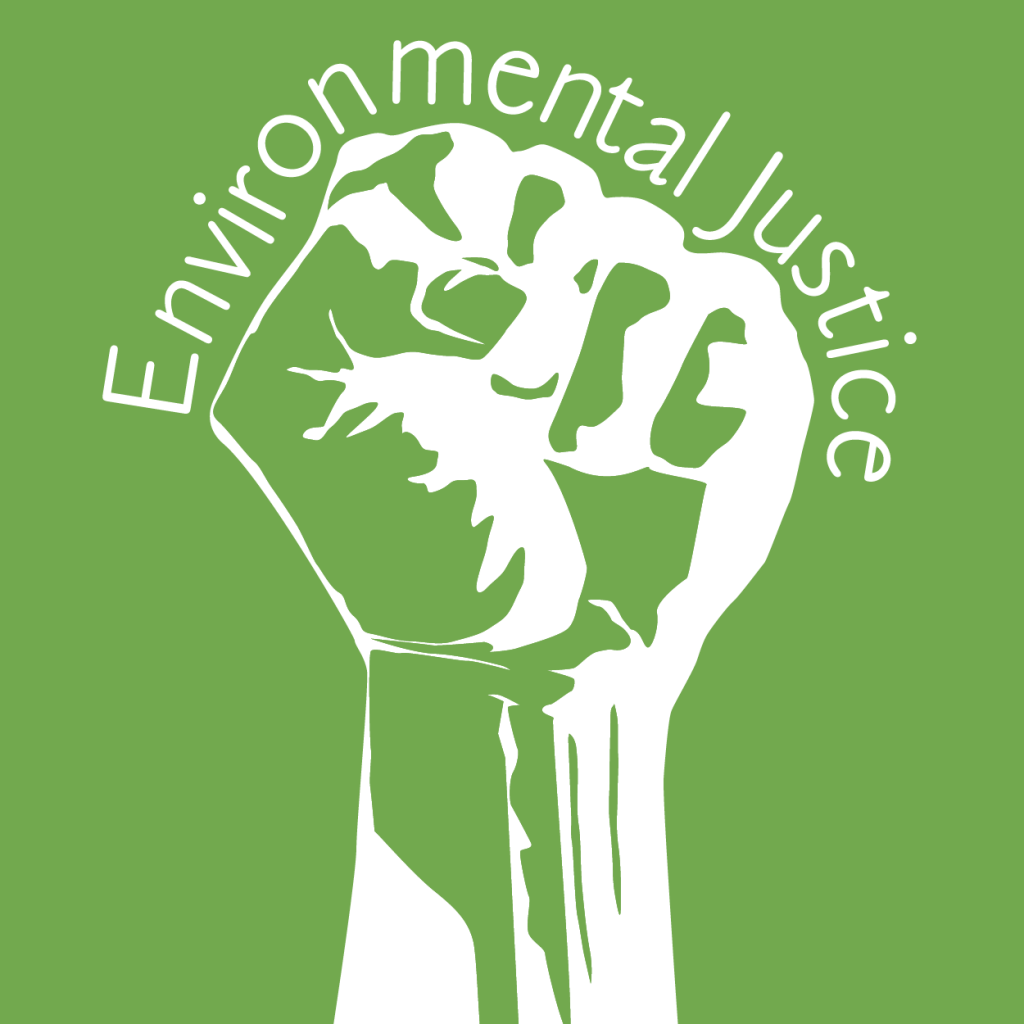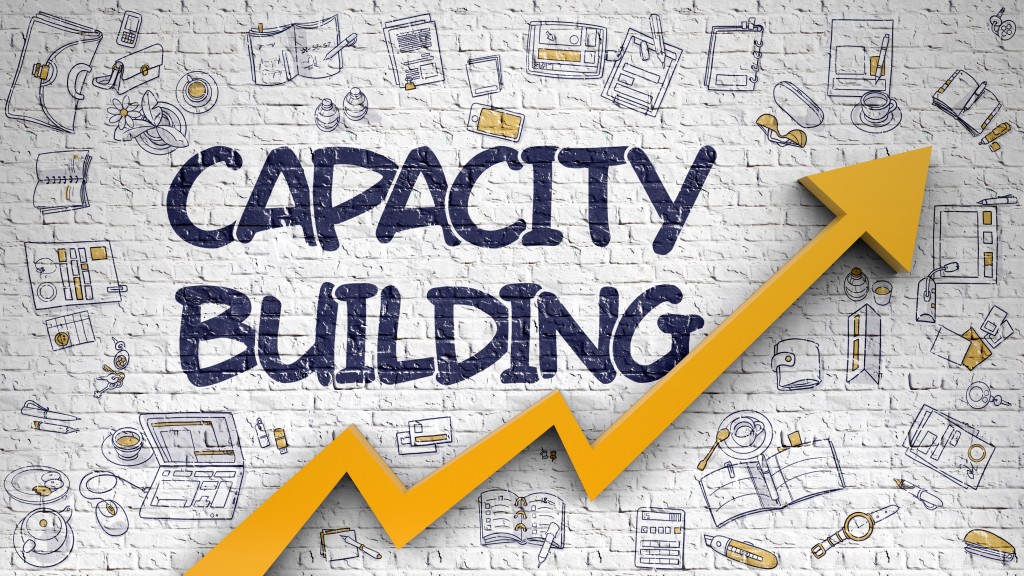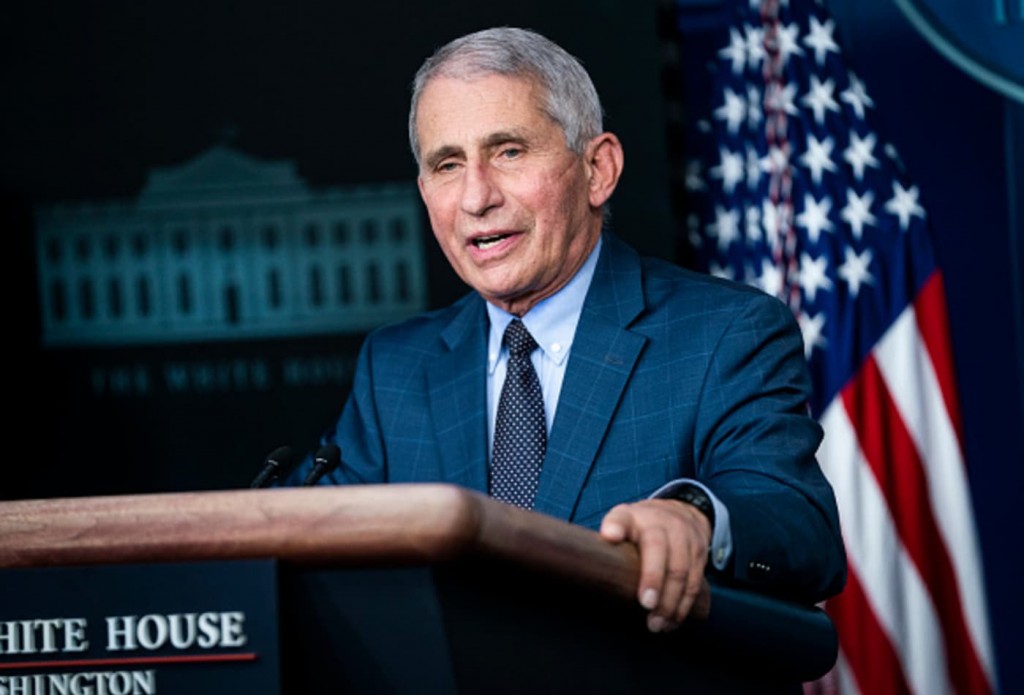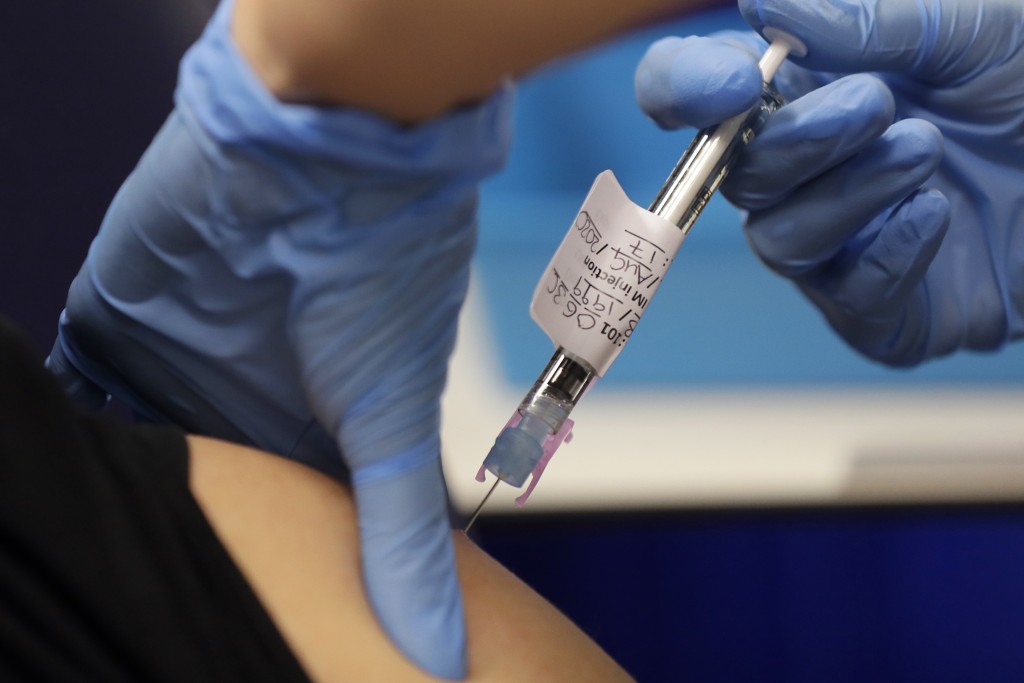
Spring 2021
Message from the Director
Director’s Note
Sabith Khan, Ph.D.
Welcome to yet another Spring term,
The Spring of 2021 is one of the multiple promises – the promise of cure, the promise of economic recovery, and the promise of unity. And like all promises, this season depends on us upholding our end of the bargain, to make all of this work.
The elections in 2020 proved to be not only historic but also saw the most voter engagement ever. We can congratulate ourselves that democracy has prevailed, despite some hiccups and that procedural democracy led to a substantive democracy. The next couple of months will be crucial as we deal with a once-in-a-lifetime pandemic and the aftermath of an election that was both historic and path-breaking. Tackling COVID-19 has been and will continue to be a top priority for all Americans, at the federal and state levels.
This period in American history is also a poignant reminder of the sacrifices that everyday Americans make as we go about our everyday lives. The postman who delivers your mail, the nurse who cares for the sick (and dying), the teachers who show up to work knowing that they may get infected with covid-19, are all reminders that decency and a commitment to making the world a better place exists despite the rancor, noise, and fighting between political groups.
Alexis de Tocqueville wrote about this ‘group solidarity’ in the America of the 1800s when he pointed out the nature of the emergent civil society in America. Writing in “Democracy in America” that “Societies are formed to resist enemies which are exclusive of a moral nature, and to diminish the vice of intemperance in the United States associations are established to promote public order, commerce, industry, morality, and religion; for there is no end which the human will second by the collective exertions of individuals, despairs of attaining (p.214).” Tocqueville spoke highly of the spirit of the Americans to come together to solve problems and address issues that were of common interest.
Fast-forward two centuries, while issues of inequality, access to healthcare have assumed center stage, we must not forget that solving these will require not just facts, but also a bit of imagination and ‘group solidarity’ and a focus on the common issues facing all of us.
How we resolve this will depend on our collective imagination and our ability to link our own experiences to that of the needs of our society. C Wright Mills, a Sociologist called this capacity one’s ‘sociological imagination,’ i.e., to have a “vivid awareness of the relationship between experience and wider society.’ It seems like we all need to develop more of this to tackle the challenges before us.
The need to address this pandemic on a war footing is not just key, but the most significant policy priority, points out Amitai Etzioni, a political scientist and a scholar, who advocates “communitarianism,” a political philosophy based on the obligations of the individual towards his/ her community. This could also be compared to the concept of Asabiya, or group solidarity as defined by Ibn Khaldun, the 14th-century philosopher considered the father of modern sociology.
As scholars, practitioners, and thinkers, we are responsible for developing our sociological imagination and realizing our responsibility towards others, both as community members and members of a body politic. May our collective imagination bring forth a more healthy, united, and vibrant country.
Finally, I want to welcome our incoming students as well as those who have been with us for a few terms.
I am hoping to see all of you in person, soon!
Education Policy in Action
Loredana Carson, Ed.D.
Often things that happen on the federal level center on issues far from the daily life of college students and recent college graduates, but a looming policy on the horizon is worth following, especially for MPPA students. Joe Biden is proposing a new loan forgiveness program that will provide student debt relief of $10,000 for every year of national or community service, up to a maximum of 5 years or $50,000. Both graduate and undergraduate loans will qualify for the relief. Teachers, government officials, and other non-profit employees would qualify for the program. For more information, you can read the plan on Biden’s website here:
In addition, the President plans to fix the existing but currently non-functional Public Service Loan Forgiveness program by ensuring the passage of the What You Can Do For Your Country Act of 2019. The administration plans to have both options open to qualifying individuals. More details are available here
Another platform that President Biden often mentioned on the campaign trail was the concept of eliminating student debt in general. Now that the two seats in Georgia have been turned blue, it is indeed possible that this idea will continue to gain traction and indeed may even someday become a reality.
While the exact amount of the debt relief and the details of the policy implementation remain vague, policy analysts are discussing amounts ranging from $10,000 to $50,000. Support for the initiative is bipartisan but the amount supported appears to follow party lines, with Democrats pushing the amount up and the Republicans preferring the lower amount if they support the measure at all. Biden appears to favor the $10,000 amount, which the more liberal consider to be too small an amount while the conservatives think it is too much.
The idea of forgiving student debt is not new, but since the pandemic, the need has grown as the economy has stalled and unemployment has become a real issue for many, recent graduates included. Before COVID-19, 25% of all student loans were either delinquent or at risk of default. President Biden has extended the previous administrations’ order to pause monthly loan payments for federally insured student loans until the fall of 2021. When the pause order expires, many more than 25% of the loans could be in jeopardy.
Many who advocate for debt relief comment that enacting this policy could go a long way to close the racial wealth gap as people of color have been more impacted than the general population and are therefore the most at risk of struggling with repayment. Analysts think it unlikely that Biden will propose the debt relief begin until Fall of 2021 when the current pause expires. The delay will also give him time to focus on other pressing matters regarding the pandemic and the economy and also to gather bipartisan support for the measure. There is some optimism that some form of debt relief will allow millions of people carrying student loan debt to be able to start thinking about other goals they have had to put on hold and also allow that money to stimulate the economy.
New Faculty/Courses
Steve Mermell -  The City manager of City of Pasadena will be teaching Local Economic Development in the MPPA program, starting in the Spring term. Mermell brings over 35 years of experience in City Management and related areas and is also on the advisory board of the MPPA department. Join us in welcoming him to our program.
The City manager of City of Pasadena will be teaching Local Economic Development in the MPPA program, starting in the Spring term. Mermell brings over 35 years of experience in City Management and related areas and is also on the advisory board of the MPPA department. Join us in welcoming him to our program.
Meet our New Program Specialist: Rachael Fowler 
Many of you have already met or interacted with Ms.Rachel Fowler, our new Program Specialist. For those of you who haven’t here is a short introduction by Rachael, in her own words:
“Hello all! I am excited to start work in the MPPA program. I have three degrees; Associates of Arts in Social Sciences, Associates of Science in Child Development and a Bachelor of Science in Elementary Education. I ran a successful Childcare business for 25 years. I love working with children, especially toddlers. I am fortunate to be married to my best friend. Our two sons are married, and we have 4 ½ grandchildren.”
Interview with Ana Garrett: Foreign Service Officer, State Dept., MPPA Alumna
Ana Garrett graduated from the MPPA program in 2014 and since then has worked for the U.S. State Department in various capacities. Here is a short interview with her that outlines her experience as a U.S. Foreign Service Officer. 
Biography: I was born in Wisconsin and got my BA in legal studies at the University of Wisconsin-Madison. In 1998 I joined the Wisconsin Air National Guard and served 7 years including 2 years of active duty after 9/11 for Operation Enduring Freedom. I also have a paralegal certificate in Corporate Law from UCLA. I worked in the Auto Industry for Volkswagen of America as a factory representative in California and then in Washington state. In 2018 I joined the State Department as a Foreign Service Officer with a specialization (cone) in Management. I am currently posted in Nouakchott Mauritania in Africa. My next post will be in Amsterdam Holland. I have three adult children and two lovely grandchildren. I enjoy painting, pottery, working out and walking my sweet Australian-Shepherd Luna.
1. Tell us about what you do and how you got to the State Department?
I currently work in Nouakchott Mauritania at the United States Embassy. I am a General Services Officer and I specialize in six areas of responsibility. An American Embassy, whose main purpose is to represent and promote American interests abroad is a complex operation. I focus on supporting the logistical needs of the Embassy and its staff. On a daily basis I might be locating housing for new incoming families, ensuring items are ordered and received according to Federal Procurement laws, confirming motor pool schedules are efficient and drivers have all of their training classes, or helping to ensure travelers have a smooth arrival or departure. I oversee a large team of over 65 locally employed staff. It is truly the most challenging and difficult job I have ever had. However, knowing I am representing my country overseas and playing a small part of a greater mission makes it all worth it.
2. What is your motivation for public service?
My motivation is two-fold, firstly I believe fully in the ideals of our country. I am happy to know that when I meet people overseas, I am a representative of the United States. I take great pride in knowing that I have been trusted with ensuring that the taxpayer’s money is spent wisely. Secondly, I really enjoy traveling and meeting people from other countries. It is one thing to travel, but to become immersed in another country is enlightening and often humbling. I also really enjoy languages and the State Department actually pays us to learn new languages. I spent 9 months learning French full-time at the Foreign Service Institute so I could communicate here in Mauritania (a former French colony).
3. How did the MPPA program prepare you for your career?
I was working almost 15 years in the Auto Industry before I got my MPPA. I knew that I wanted to serve either overseas or in local government. The MPPA program was invaluable in allowing me to have the skills that made me an attractive candidate for the Foreign Service. There were several professors that encouraged me and even offered to review my personal statement for my application. I will be forever grateful for the mentorship offered by both Dr. Herbert Gooch and Dr. Valeria Makarova. For anyone considering a job in public service, I say without a doubt that the MPPA program was critical in my success.
4. What advice would you give to those in the program preparing for their Foreign Services Exam?
I would suggest that you start off by taking the exam without much preparation. That will give you a baseline to get a feel for the test and to show you which categories to focus on. It is a difficult test, but you can absolutely study for it. There are several books and sites online that can assist. There is also a reddit group and yahoo groups where you can chat with other test takers. After passing the test, you will write essays demonstrating your leadership abilities. If you are invited to the oral assessment in Washington D.C., I suggest you find a group of potential test takers and practice weekly for the assessment. This practice was invaluable, and I made friends with people who later also passed the test and became my colleagues.
5. Any other tips/suggestions on how to prepare for a public service, either locally or globally?
I suggest you focus on what you are passionate about. If you follow what you love, you will always have satisfaction and I promise the money will follow. On a practical note, educate yourself through good news sources about what is happening in the world. Learn who the key issues and players are on a global, National, or local scale. Get involved in something that interests you and make connections. Just be aware that although the world is a big place, we are all part of the community and more alike than different.
Student & Alumni news/ updates:
Matthew Standsberry  was nominated to present at the annual Ventura County Public Works Agency State of the Union.
was nominated to present at the annual Ventura County Public Works Agency State of the Union.
“It was an honor to be nominated and present at the annual Ventura County Public Works Agency State of the Union on behalf of Ventura County Water and Sanitation. This year’s theme was “Embracing Change, A Better Way Every day, The VCPWA Way”. This event required a lot of time and preparation, but was extremely rewarding to present the work that our agency does for our community.”
 Erin Niemi, a current MPPA student has secured a public service internship with the County of Ventura. Erin’s internship is geared towards social media, public relations, policy implementation, research, and marketing and I’ll be working to do a bit of everything.
Erin Niemi, a current MPPA student has secured a public service internship with the County of Ventura. Erin’s internship is geared towards social media, public relations, policy implementation, research, and marketing and I’ll be working to do a bit of everything.
Matthew Gammariello clears CA Bar exam!

My journey through this MPPA program has not been far from traditional. It has not been traditional because on Friday, January 8, 2020, I passed the California Bar examination all the while still needing to complete two classes to finish my MPPA studies. Usually, when someone completes their undergraduate studies they start either in the workforce or decide for more education. My story might seem strange because I graduated from Loyola Law School and then decided to do this MPPA program. This is because it was not until my final year at Loyola that I found my passion which was public administration and service. I vividly remember taking Healthcare Law, Administrative Law, and Land Use Controls (think Urban Planning) at Loyola and from these classes, I knew that my calling was in public administration and service.
After I graduated from law school, I enrolled in this MPPA program. I can not tell you how much I learned from this program that will help me move up the ranks within a governmental agency. This program after law school helped refine my writing while I learned more about the history and complexities of public administration procedure and implementation.
While I took this October 2020 examination during a pandemic and after being twice postponed (from July to September than to finally October). I did this while completing my MPPA studies taking one class a term. If anything this whole process has taught me that perseverance and determination come from within yourself. I know this because I have been blessed to have had classes with a majority of the future graduates in this Program. I still am amazed at what the future has in store after hearing your personal stories. Also, how a majority of you have jobs already in public administration but you have a thirst for wanting more in your career. This Program will give it to you in spades. “

Greg Sefain’s capstone project featured in San Fernando Valley Business Journal!
Current student, Greg Sefain recently completed his capstone project focusing on the revitalization of the restaurant industry in the City of Pasadena. His project was featured in the San Fernando Valley Business Journal in January. Here is a snapshot.

Maram Alzahrani
Maram Alzahrani, MPPA class of 2019 has been admitted to the PhD in Organizational Leadership program at Pepperdine University.
Kevin Young
Kevin Young, MPPA class of 2019 has joined as a US Probation and Pretrial Services Officer at United States Courts, LA Metropolitan Area
Faculty updates :
Prof. Chris Beck
Prof. Beck was appointed as the City Attorney for the City of Palmdale, beginning on September 1, 2020. Prof. Beck has been an adjunct professor with Cal Lutheran since 2016 and teaches Law & Public Policy.
Alex Balkin
In September 2020, Alex Balkin became the Director of Command Reviews and Investigations (CR&I) at Naval Sea Systems Command, Naval Surface Warfare Center Port Hueneme Division (NSWC-PHD). The CR&I Office is the local representative of the Naval Inspector General and objectively evaluates the effectiveness and efficiency of the Command. Additionally the office is responsible for the identification, prevention, and remediation of fraud, waste, abuse and mismanagement.
Prof. Balkin teaches a course in Program Evaluation in the MPPA program.
Prof. Sandy Smith appointed to the Ventura County Workforce Development Task Force
 Sandy Smith is a project manager of Sespe Consulting, Inc. in Ventura. He is responsible for providing strategic analysis and counseling in land use planning and project planning. He is a former mayor for the City of Ventura, past chair and current policy chair for the Ventura County Economic Development Association, and a senior adjunct instructor in the California Lutheran Universities Masters Program in Public Policy and Administration. “Huge sections of our workforce have been impacted by the coronavirus, especially in specific socio-demographic sectors,” says Smith. “The virus further compounded the divide between the haves and the have-nots. The workplace is changing, and we must find ways to retrain workers to help the county reemerge economically. I believe Ventura County is well-positioned. We have a history of working collaboratively across sectors, and we are a small enough county so that innovative programs can have an impact.”
Sandy Smith is a project manager of Sespe Consulting, Inc. in Ventura. He is responsible for providing strategic analysis and counseling in land use planning and project planning. He is a former mayor for the City of Ventura, past chair and current policy chair for the Ventura County Economic Development Association, and a senior adjunct instructor in the California Lutheran Universities Masters Program in Public Policy and Administration. “Huge sections of our workforce have been impacted by the coronavirus, especially in specific socio-demographic sectors,” says Smith. “The virus further compounded the divide between the haves and the have-nots. The workplace is changing, and we must find ways to retrain workers to help the county reemerge economically. I believe Ventura County is well-positioned. We have a history of working collaboratively across sectors, and we are a small enough county so that innovative programs can have an impact.”
Khan’s book wins national research Award at Association for Research on Nonprofit Organizations and Voluntary Action (ARNOVA)

Dr. Sabith Khan’s book (co-authored with Dr. Shariq Siddiqui) “Islamic Education in the US and Evolution of American Muslim Nonprofit institutions” won the prestigious Virginia Hodgkinson Research Book Prize, ARNOVA 2020 in November 2020.
Founded in 1971 as the Association of Voluntary Action Scholars, ARNOVA is a neutral, open forum committed to strengthening the research about and helping shape better practice in these realms. For more information, visit www.arnova.org
Khan’s book release
 Dr. Sabith Khan and his co-author, Dr. Daisha Merritt also released their book, “Remittances and International Development-The Invisible Force Shaping Community,” in August 2020 (Routledge Press). This book is an examination of remittance flows between USA-Mexico and India-Saudi Arabia.
Dr. Sabith Khan and his co-author, Dr. Daisha Merritt also released their book, “Remittances and International Development-The Invisible Force Shaping Community,” in August 2020 (Routledge Press). This book is an examination of remittance flows between USA-Mexico and India-Saudi Arabia.
Events :
The MPPA program hosted two career events (see posters and links to recordings below).

View the recording at https://www.youtube.com/watch?v=rhMHStZhelQ&t=2503s

View the recording at https://www.youtube.com/watch?v=tMa2YlPY8bo&t=3s
What we are reading :





The MPPA program would love to feature you and your career and education updates. Please email us if you would like to share an event from your life. Send text and photos to sabkhan@callutheran.edu OR carson@callutheran.edu
Connecting@CalLutheran – At this time, as we move along our gradual path to repopulating, there are no plans to continue the Connecting@CalLutheran webinar series. To view recorded episodes of the webinar, which was launched in March to bring us together while we were separated physically, click here.
 Like SOM
Like SOM Join SOM
Join SOM Follow SOM
Follow SOM YouTube
YouTube










 The City manager of City of Pasadena will be teaching Local Economic Development in the MPPA program, starting in the Spring term. Mermell brings over 35 years of experience in City Management and related areas and is also on the advisory board of the MPPA department. Join us in welcoming him to our program.
The City manager of City of Pasadena will be teaching Local Economic Development in the MPPA program, starting in the Spring term. Mermell brings over 35 years of experience in City Management and related areas and is also on the advisory board of the MPPA department. Join us in welcoming him to our program.

 was nominated to present at the annual Ventura County Public Works Agency State of the Union.
was nominated to present at the annual Ventura County Public Works Agency State of the Union. Erin Niemi, a current MPPA student has secured a public service internship with the County of Ventura. Erin’s internship is geared towards social media, public relations, policy implementation, research, and marketing and I’ll be working to do a bit of everything.
Erin Niemi, a current MPPA student has secured a public service internship with the County of Ventura. Erin’s internship is geared towards social media, public relations, policy implementation, research, and marketing and I’ll be working to do a bit of everything.






 Sandy Smith is a project manager of Sespe Consulting, Inc. in Ventura. He is responsible for providing strategic analysis and counseling in land use planning and project planning. He is a former mayor for the City of Ventura, past chair and current policy chair for the Ventura County Economic Development Association, and a senior adjunct instructor in the California Lutheran Universities Masters Program in Public Policy and Administration. “Huge sections of our workforce have been impacted by the coronavirus, especially in specific socio-demographic sectors,” says Smith. “The virus further compounded the divide between the haves and the have-nots. The workplace is changing, and we must find ways to retrain workers to help the county reemerge economically. I believe Ventura County is well-positioned. We have a history of working collaboratively across sectors, and we are a small enough county so that innovative programs can have an impact.”
Sandy Smith is a project manager of Sespe Consulting, Inc. in Ventura. He is responsible for providing strategic analysis and counseling in land use planning and project planning. He is a former mayor for the City of Ventura, past chair and current policy chair for the Ventura County Economic Development Association, and a senior adjunct instructor in the California Lutheran Universities Masters Program in Public Policy and Administration. “Huge sections of our workforce have been impacted by the coronavirus, especially in specific socio-demographic sectors,” says Smith. “The virus further compounded the divide between the haves and the have-nots. The workplace is changing, and we must find ways to retrain workers to help the county reemerge economically. I believe Ventura County is well-positioned. We have a history of working collaboratively across sectors, and we are a small enough county so that innovative programs can have an impact.”
 Dr. Sabith Khan and his co-author, Dr. Daisha Merritt also released their book, “Remittances and International Development-The Invisible Force Shaping Community,” in August 2020 (Routledge Press). This book is an examination of remittance flows between USA-Mexico and India-Saudi Arabia.
Dr. Sabith Khan and his co-author, Dr. Daisha Merritt also released their book, “Remittances and International Development-The Invisible Force Shaping Community,” in August 2020 (Routledge Press). This book is an examination of remittance flows between USA-Mexico and India-Saudi Arabia.










